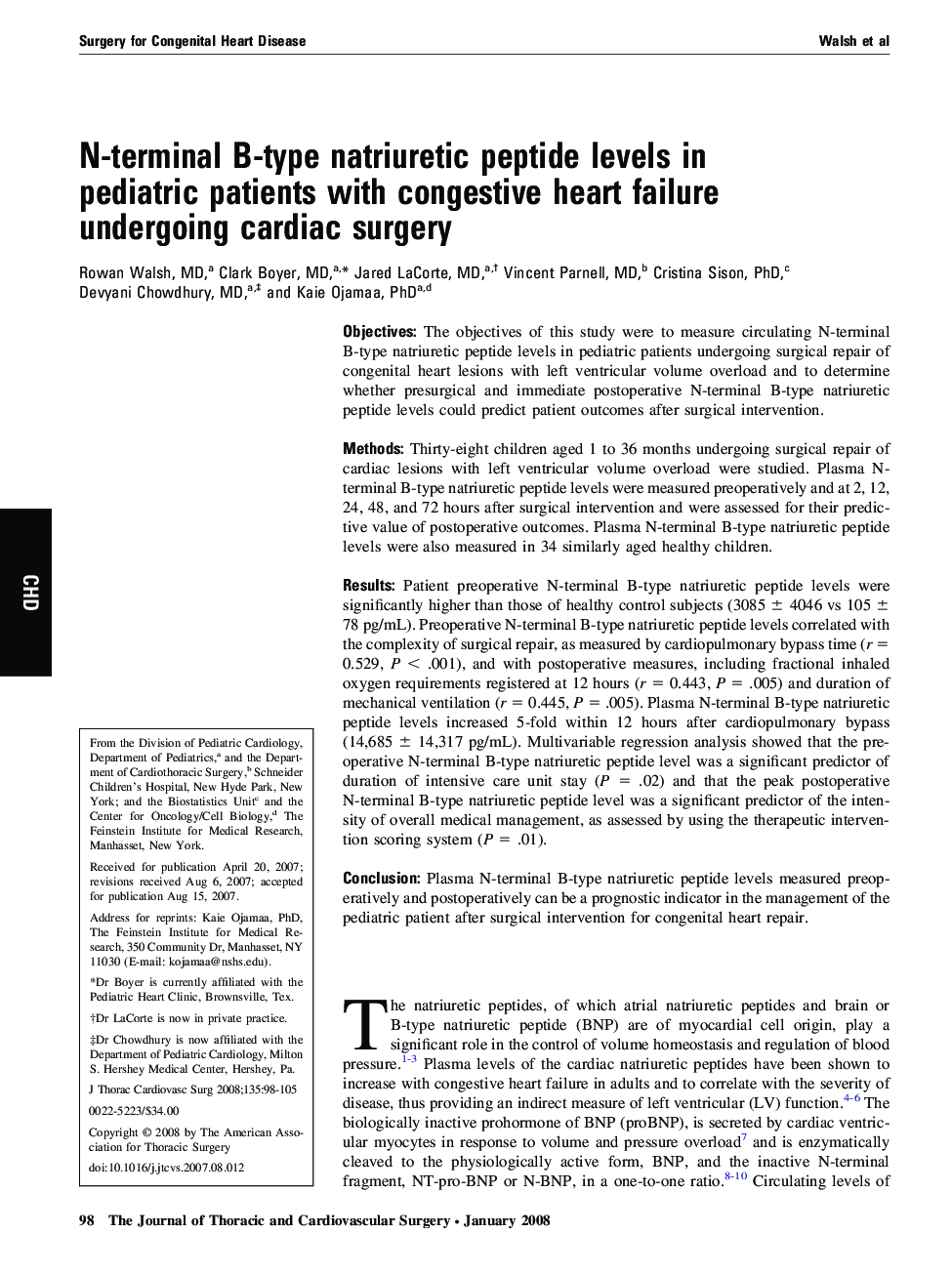| Article ID | Journal | Published Year | Pages | File Type |
|---|---|---|---|---|
| 2983925 | The Journal of Thoracic and Cardiovascular Surgery | 2008 | 8 Pages |
ObjectivesThe objectives of this study were to measure circulating N-terminal B-type natriuretic peptide levels in pediatric patients undergoing surgical repair of congenital heart lesions with left ventricular volume overload and to determine whether presurgical and immediate postoperative N-terminal B-type natriuretic peptide levels could predict patient outcomes after surgical intervention.MethodsThirty-eight children aged 1 to 36 months undergoing surgical repair of cardiac lesions with left ventricular volume overload were studied. Plasma N-terminal B-type natriuretic peptide levels were measured preoperatively and at 2, 12, 24, 48, and 72 hours after surgical intervention and were assessed for their predictive value of postoperative outcomes. Plasma N-terminal B-type natriuretic peptide levels were also measured in 34 similarly aged healthy children.ResultsPatient preoperative N-terminal B-type natriuretic peptide levels were significantly higher than those of healthy control subjects (3085 ± 4046 vs 105 ± 78 pg/mL). Preoperative N-terminal B-type natriuretic peptide levels correlated with the complexity of surgical repair, as measured by cardiopulmonary bypass time (r = 0.529, P < .001), and with postoperative measures, including fractional inhaled oxygen requirements registered at 12 hours (r = 0.443, P = .005) and duration of mechanical ventilation (r = 0.445, P = .005). Plasma N-terminal B-type natriuretic peptide levels increased 5-fold within 12 hours after cardiopulmonary bypass (14,685 ± 14,317 pg/mL). Multivariable regression analysis showed that the preoperative N-terminal B-type natriuretic peptide level was a significant predictor of duration of intensive care unit stay (P = .02) and that the peak postoperative N-terminal B-type natriuretic peptide level was a significant predictor of the intensity of overall medical management, as assessed by using the therapeutic intervention scoring system (P = .01).ConclusionPlasma N-terminal B-type natriuretic peptide levels measured preoperatively and postoperatively can be a prognostic indicator in the management of the pediatric patient after surgical intervention for congenital heart repair.
